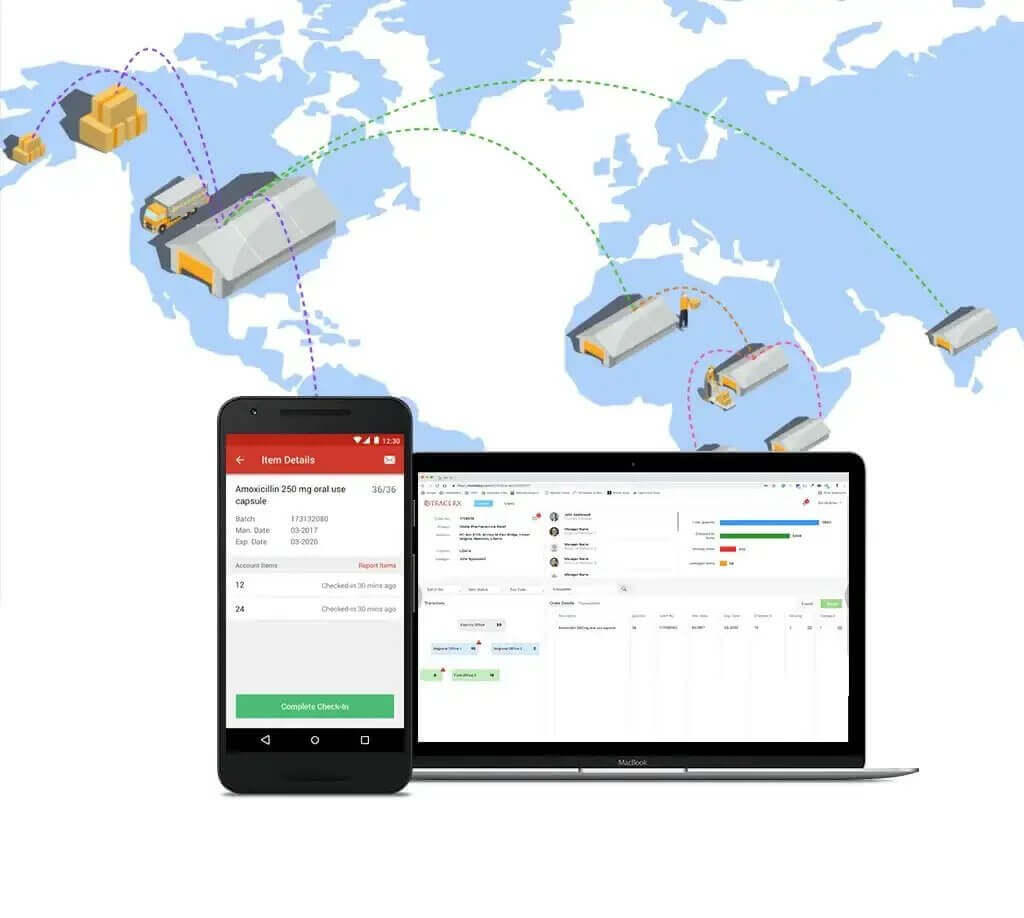EMR/EHR Software Development
We develop custom EHR software solutions to help healthcare organizations maximize clinical productivity and enhance the quality of patient care.


Custom EHR Software Development

Appointment Management
Both doctors and patients can schedule and manage their appointments via EHR software and set up a reminder notification.

Timely Care
Doctors can access patients’ electronic health records (EHR) 24/7 from any part of the world and can provide appropriate care quickly.

Integrated Communication
EHR Software can have an in-built communication feature that allows patients to interact with doctors in case they have some emergency.
Our EMR/EHR Software Development Services

EMR/EHR Solutions
We build EHR and EMR software with a secure database, medication tracking, robust integrated features and dedicated patient portals.

EHR Integration Services
Our Healthcare Software Development Team can integrate EHR/EMR software with any third-party apps, be it medical billing services, reporting apps, insurance apps and document management software.

Compliant EHR Systems
We develop a certified EHR system that follows HL7 functional specifications and HIPAA compliance to ensure the secure transfer of patient information. We use TLS and SSL encryption for role-based authentication.

EMR/EHR Mobile Apps
We build secure and scalable health apps for patients and doctors that allow them to exchange healthcare information seamlessly, enabling exceptional results in healthcare accessibility and quality.

E-prescribing System
Our healthcare software developers can integrate an e-prescribing platform with EHR software to get rid of switching back and forth between prescription services and records.

Healthcare Data Analytics
By implementing Artificial Intelligence and Machine Learning on healthcare data, we help healthcare organizations analyze the massive amount of data and make informed decisions.
Compliances and Standards

FHIR
Fast Healthcare Interoperability Resources is a standard that describes elements and data formats and an API to exchange electronic health records.

HIPAA
Health Insurance Portability and Accountability Act is implemented to protect sensitive patient health data from being exposed without the patient’s knowledge or consent.

DICOM
Digital Imaging and Communications in Medicine is the international standard used to store, transmit, retrieve, process, print and display medical imaging information.

CCDA
Consolidated Clinical Document Architecture is a markup standard used to create documents and templates for medical documents.

SNOMED
SNOMED Clinical Terms is a systematically organized computer processable collection of medical terms offering terms, codes, definitions and synonyms used in clinical documentation and reporting.

GDPR
General Data Protection Regulation is the core of Europe’s digital privacy legislation that requires adherence to policies of gathering, processing and securing personal data.
We Are a System Integrator for Healthcare Companies
Hospital Management System
We can integrate the hospital management system into your existing healthcare solution that will help hospitals of all sizes manage patients, staff, admin, inventory and accounts.
Medical Billing Software
Our team of EHR software developers can help you manage patient billing and collections by integrating medical billing software into the EHR solution.
Medical Scheduling Software
We can integrate medical scheduling software into your existing software to help you manage patients, staff and facilities scheduling seamlessly.
Medical Imaging Software
With EHR Software, Doctors can

Manage Patients' Health Records

Upload Prescription

Manage Appointments
With EHR Software, Patients can

View Doctor's Profile

Book Appointments

Access EHRs
Our Work in Healthcare Software Development

Telemedicine Platform For Hospitals and Clinics



Our Engagement Models

Dedicated Development Team
Our developers leverage cutting-edge cognitive technologies to deliver high-quality services and tailored solutions to our clients.

Team Extension
Our team extension model is designed to assist clients seeking to expand their teams with the precise expertise needed for their projects.

Project-based Model
Our project-oriented approach, supported by our team of software development specialists, is dedicated to fostering client collaboration and achieving specific project objectives.
Get Started Today
1. Contact Us
Fill out the contact form protected by NDA, book a calendar and schedule a Zoom Meeting with our experts.
2. Get a Consultation
Get on a call with our team to know the feasibility of your project idea.
3. Get a Cost Estimate
Based on the project requirements, we share a project proposal with budget and timeline estimates.
4. Project Kickoff
Once the project is signed, we bring together a team from a range of disciplines to kick start your project.
What can we do for you? Let’s talk
Once you let us know your requirement, our technical expert will schedule a call and discuss your idea in detail post sign of an NDA.
All information will be kept confidential.
FAQs
How does EHR Software Work?
A healthcare professional uses EMR/EHR Software to enter information about a new patient into the system and digital health records are created. EHR software contains patients’ health records that can be accessed by healthcare professionals and patients in real-time.
What are the core functions of EHR?
The core functions of EHR Software are as follows:
- Health Records and Data Management
- Patient Support
- Decision Support
- Order Management
- Reporting and Population Health
- Administrative Processes and Reporting
What is the EHR (Electronic Health Record)?
Health Records contain patients’ crucial information that is not just restricted to patient medical records. It contains doctor’s prescriptions, lab reports, self-reported data, data from wearable devices and previous medical history.
What is the difference between EHR and EMR?
Both EHR and EMR are usually used interchangeably. However, they both have different purposes. An EMR is a digital version of a patient’s chart and contains patient’s treatment history from one practice. It usually stays in the doctor’s office and cannot be shared.
On the other hand, an EHR comprises the patient’s records from various doctors and offers a long-time view of a patient’s health. It contains their test results, medical history, demographics and medication information.
What features should be included in EHR software?
Features that should be included in EHR Software are as follows:
- Intelligent Patient Workflows
- Expedite Patient Encounters
- Task Management Capabilities
- Intuitive User Interface
- Easy Appointment Scheduling
What is EMR/EHR Software Development?
EMR/EHR Software Development is the process of developing EMR and EHR software that can be used by both healthcare professionals and patients to access electronic medical or health records. Using EHR Software, patients can also share their health records with other doctors and healthcare professionals.
Insights
What is Serverless Architecture and how it works?
Serverless Architecture is a software design model where a third-party service hosts applications and removes the need for server hardware and software management.
Digital Transformation in Banking
Digital Transformation in Banking allows financial institutes to know what customers want and strengthen customer engagement with personalized offerings.
Impact of Cloud Computing in Healthcare Industry
Cloud Computing in healthcare sector allows care providers to store patient data on the cloud while avoiding costs of maintaining physical servers.





